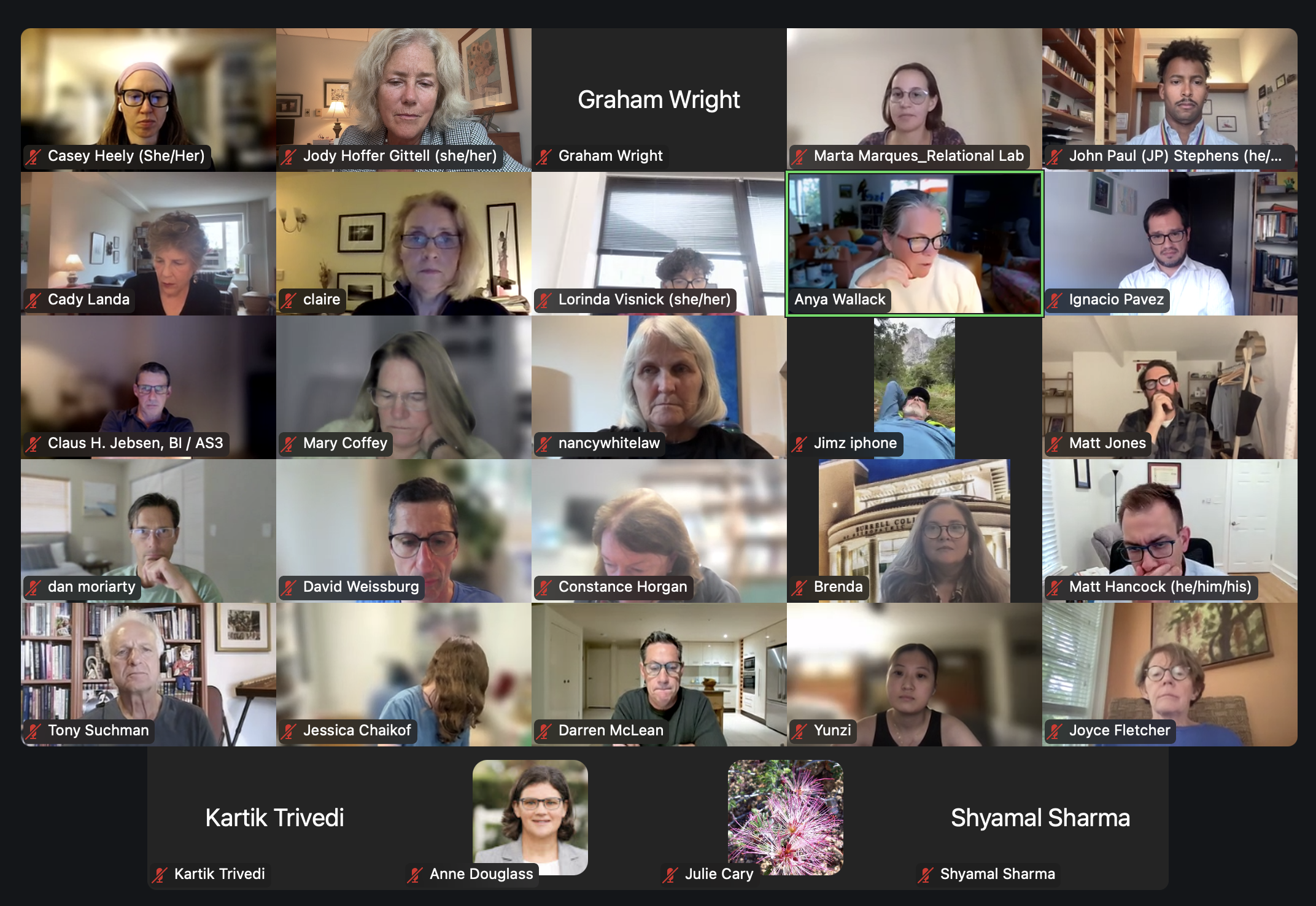
Panelists
Graham Wright (Brandeis University)
Anya Rader Wallack (Health Management Associates)
Darren McLean (Gold Coast Health)
Marta Marques (Relational Lab)
Facilitator
Jody Hoffer Gittell (Brandeis University)
Overview
We are living in a time of growing divisions and authoritarian tendencies in our organizations and our communities. In this Cafe, we will explore whether and how integrative processes like relational coordination can help leaders respond effectively to these challenges and how to frame it for that purpose.
In times where connection is often stereotyped as a sign of weakness (McLean et al 2025), let us consider how to reframe the power of integrative processes like relational coordination. Through its focus on timely, accurate, problem-solving communication, relational coordination can help to address problems that seem insurmountable. Through building relationships of shared goals, shared knowledge and mutual respect, relational coordination can arguably help us find integrative solutions to the challenges we face (Gittell & Fletcher, 2019; Wright, 2025).

Register Here
You will receive a zoom link and calendar invite after registering. You must be a member or be invited by a member. Contact us at relationalcoord@brandeis.edu to be invited as our guest.
Become a member or renew your membership here!
References
Follett, M.P. (2011/1926). Constructive conflict. In Godwyn, M. & Gittell, J.H. (eds.), Sociology of Organizations: Structures and Relationships. Sage Publications.
Gittell, J.H. & Fletcher, J. (2019). Integrative solutions in a divided world: Toward a relational model of change. In M. Stout (ed.) The Future of Progressivism: Applying Follettian Thinking to Contemporary Issues. Process Century Press.
Gittell, J. H. (2016). The relational model of organizational change. Transforming Relationships for High Performance: The Power of Relational Coordination. Stanford University Press.
McLean, D., Connor, M., Marshall, A. P., McMurray, A., & Jones, L. (2025). Illuminating power dynamics that influenced a relational coordination program in a tertiary hospital: An institutional ethnography study. Health Care Management Review, 50(1), 23-31.
Wright, G. (2024). Persuasion, Integration, and Deliberative Democracy: The Will of the Whole, Chapter 3. Routledge.
